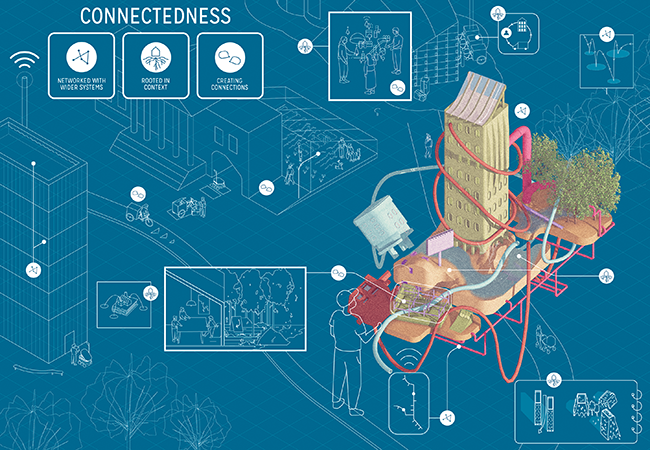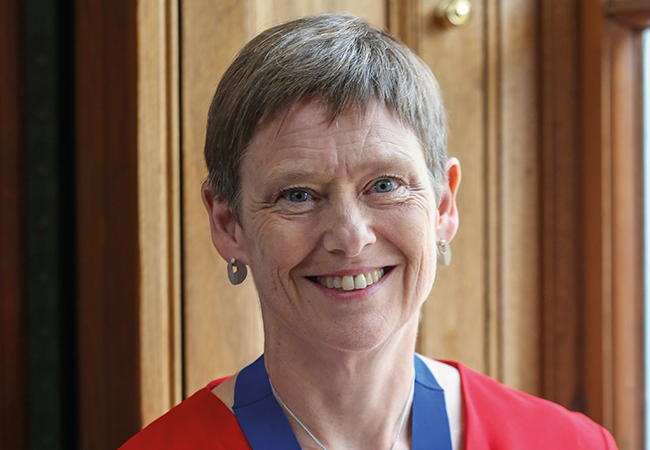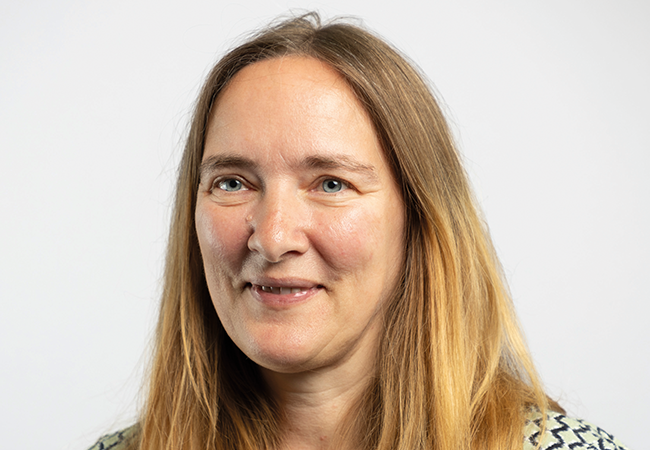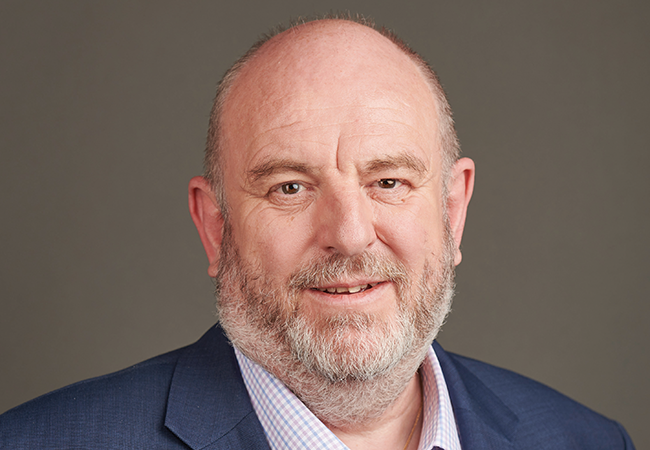
In her inaugural address, CIBSE President Fiona Cousins called on members to rethink the way they deliver buildings, and revealed new research – Building Performance Reimagined.
On 8 October, a CIBSE conference is inviting a range of experts to consider how engineers will inspire and inform resilient, zero carbon buildings.

CIBSE/Arup report
The event will focus on the four performance metrics identified within Cousins’ report on building performance: variety, readiness, connectedness and emergence.
We asked four of the conference speakers to tell us what building performance means to them, and what areas engineers should be focusing on to ensure buildings are fit for the future.
Fiona Cousins, CIBSE President

Fiona Cousins
Traditionally, mechanical engineers have focused on designing systems that provide a comfortable environment in an energy-efficient way, and at a cost that owners can afford. Now, with different expectations for comfort and health in the workplace, and a shifting focus from energy efficiency to decarbonisation, we need to ask ourselves what more we can do.
There is lots to explore around how our physical environments are moderated by digital experiences, by our experiences through the pandemic, and our expectations around productivity and health.
Energy efficiency is also still important and has been joined by decarbonisation. We sometimes lose sight of how energy efficiency supports the transition to decarbonising energy and there are new factors to consider around building-grid interaction and the water-energy nexus.
In addition, we should remember that setting buildings up so they can be operated properly, renovated, repurposed and, eventually, recycled are key components of building performance.
Eimear Moloney, FCIBSE, head of building performance at Hoare Lea

Eimear Moloney
Engineers should constantly remind themselves of the ability we have to influence people’s experience of the world. We need to approach each project with this mindset. It focuses us to act as true consultants, with solutions tailored to the unique needs of each end user.
The performance of existing buildings is a critical area of focus, but what does that mean for how we are set up as an industry? Do we still view ourselves as (mostly) a construction industry? Should that change? Our role should be in improving the performance of buildings – wherever and however that is needed. That place is less and less on building sites.
With building uses becoming more diverse, new technologies appearing almost daily, and targets becoming more stringent, our solutions need to be more adaptable and inventive. Building services has traditionally been seen as a science, but we need to start focusing on its ability for creativity. Engineers need to invent new ways to solve the poor performance of buildings; throw away the old rule book and focus on the art of building services.
Joanna Harris, UK&I hard FM ambassador at Sodexo

Joanna Harris
My background is in facilities management (FM), and my day job is about adapting the environment to suit the needs of building occupiers.
It is great that, as an industry, we have design criteria and build systems to meet these – but if that is not the right environment for the occupiers, we need to adapt.
The building performance project takes this focus on the way we use buildings a step further into the future. Three key areas of performance are health and wellbeing, connectedness and emergence, and regeneration.
Health and wellbeing has been top of the agenda in FM for many years, but came into sharp focus during the pandemic. We need to focus on embedding the lessons learned into everyday practice. I can see that standards are starting to slip; the reality is that value engineering and cutting maintenance budgets are back on the table.
Connectedness and emergence is about looking beyond the four walls for which you are responsible and sharing facilities with the local community. The creation of shared spaces is something I am seeing in new constructions, but there are many opportunities for existing facilities. With a bit of conscious effort, we can get facilities open to local communities outside normal working hours and create more value from existing building stock.
Regeneration, along with ‘reuse’ and ‘recycle’, is an area that should be discussed and actioned every time a project or repair is required. How can we deliver the same service and reduce our impact on the planet’s resources?
Ted Pilbeam, building services and sustainability director at Volker Fitzpatrick

Ted Pilbeam
Building services strategies touch nearly every aspect of a building’s design, so a holistic approach to building performance should be taken. Designers should immerse themselves in the actual needs of the client, rather than attempt to provide a one-size-fits-all solution.
High-performing facilities are increasingly reliant on building services, so it is imperative that services engineers take the lead, rather than wait for the architectural and structural designs to evolve. Building performance has to be ‘baked in’ to the design philosophy from the start.
There needs to be more understanding of how buildings are performing in reality. Commissioning and ongoing performance is often divorced from the original design. The ‘design and build’ mentality means final detailing is often abdicated to the building services contractor at RIBA Stage 3 or 4, rather than being completed by the consultant.
Project teams should focus on commissioning and operation as much as construction and handover. Whole life-cycle assessments are helping teams focus on the golden thread, and rapid digital progress will enable us to harvest more data and finesse our designs.
We should be opening our minds to innovative technologies. As an industry we tend to be very conservative, and specify tried-and-trusted solutions rather than explore alternative ones. As engineers, we should be at the forefront of emerging technology, and be ready to devote time and energy to understanding and embracing new concepts.
CIBSE Building Performance Reimagined takes place on 8 October at The View, Royal College of Surgeons, London. Register at bit.ly/BuildingPerformanceReimagined
